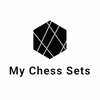Introduction to the Relationship Between Chess and IQ
Chess, a game with a centuries-old pedigree, is celebrated for its complexity and depth. Strategists and philosophers alike have marveled at its blend of art, science, and psychology. Given its cerebral nature, many people wonder if playing this illustrious game can actually enhance one's intelligence quotient (IQ). This article delves into the various studies and arguments related to the impact of chess on cognitive abilities, especially focusing on IQ levels.
Understanding IQ and Cognitive Functioning
Before discussing how chess may influence IQ, it's important to understand what IQ is and what it measures. IQ, or Intelligence Quotient, is a total score derived from standardized tests that assess human intelligence. The tests evaluate several cognitive abilities including problem-solving skills, memory, and speed of information processing. A high IQ score typically indicates strong analytical and reasoning capabilities.
Chess: A Mental Gym
Chess is often likened to a workout for the brain. The game requires and develops several cognitive skills such as strategic thinking, critical analysis, foresight, and problem-solving abilities. Engaging in a game of chess involves actively employing various methods of thinking, both creatively and logically. Chess players often plan moves and counter-moves in their heads, which improves their decision-making skills and ability to think under pressure.
The Impact of Chess on IQ: Research Findings
Various studies have attempted to quantify the impact of chess on IQ scores. For example, a landmark study by Dr. Peter Dauvergne of the University of Sydney concluded that learning and playing chess could potentially raise the IQ levels of both children and adolescents. The study, conducted over a period of time, involved having students play chess regularly and measuring changes in their IQ scores. Results indicated a positive correlation between regular chess gameplay and increased cognitive abilities.
Another significant study was done in Venezuela which involved a large group of over 4,000 second-grade students participating in formal chess instruction and its impact on their cognitive development. The study reported that after four months of chess instruction, the majority of the children showed significant improvements in their IQ scores, suggesting that chess was instrumental in enhancing their cognitive functioning.
Chess and Cognitive Development in Children
Enhancing IQ isn't the only cognitive benefit attributed to chess. Numerous educational authorities and studies propagate the inclusion of chess in school curriculums because of its broader educational benefits. These benefits particularly impact children, helping improve their concentration, patience, and persistence while also fostering critical cognitive skills such as spatial reasoning, numerical analysis, and deductive reasoning. The process of predicting and countering opponents’ moves can also enhance a child's ability to anticipate and evaluate future possibilities.
Counterpoints and Considerations
Despite the positive research linking chess with increased intelligence, there are counterarguments and skeptics who caution against overestimating the impacts of chess on IQ. Critics argue that while chess may enhance certain specific cognitive abilities, these improvements are often limited to skills directly related to the game rather than a universal increase in IQ. Furthermore, factors like the natural mental inclinations and previous cognitive abilities of individuals can play pivotal roles in determining how much they benefit from chess.
The Cognitive Ceiling
Experts suggest that there might be a 'cognitive ceiling' to how much, and in what areas, chess can improve brain function. For instance, someone might develop exceptional strategic thinking through chess, but may not see as much improvement in unrelated areas such as verbal skills or non-strategic pattern recognition.
Conclusion
In conclusion, playing chess can have a noteworthy positive impact on cognitive abilities, potentially increasing IQ scores. However, it's crucial to recognize that the benefits of chess are not uniform and can vary greatly from person to person. While the game undoubtedly offers valuable cognitive development, it is but one of many tools available for enhancing intelligence. For those looking to boost their brainpower, chess is a challenging yet enjoyable option that warrants consideration.
Explore our large collection of luxurious chess sets!